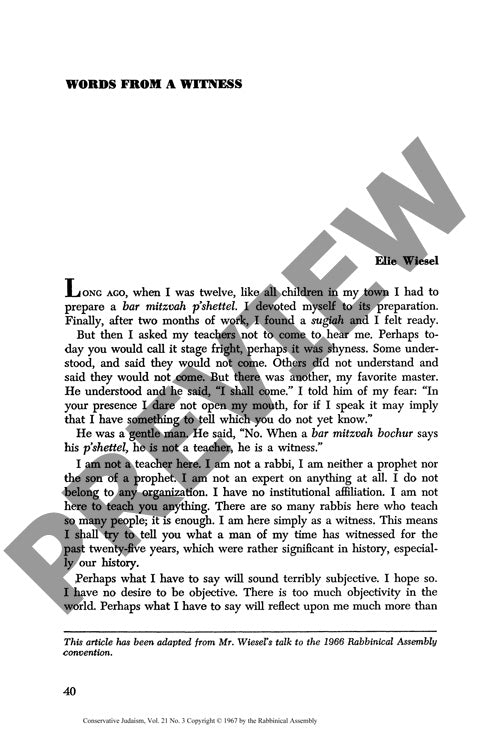Words from a Witness
Couldn't load pickup availability
In 1966, Holocaust survivor Elie Wiesel confronted his fellow Jewish leaders with an uncomfortable truth: the moral authority earned through Holocaust suffering had been squandered, reduced to commercialization and trivialization. Speaking at the Rabbinical Assembly convention, Wiesel combined personal testimony with historical analysis to evaluate post-Holocaust Jewish life and the mounting crisis of Soviet Jewish persecution. His 1965 investigation of Soviet Jewry revealed a striking paradox: despite systematic oppression eerily reminiscent of Holocaust-era conditions, Soviet Jews maintained a fierce commitment to their identity without access to religious education or resources. Through witness testimony and cultural critique, Wiesel demonstrates how Jewish communities worldwide failed to internalize crucial lessons from the Holocaust, particularly evident in their tepid response to Soviet Jewish persecution. His testimony documents a disturbing continuity: the patterns of abandonment and indifference that enabled the Holocaust persist, threatening to permit future tragedies. Wiesel's reflections serve dual purposes as historical record and moral imperative, calling for renewed Jewish solidarity and decisive action.

More Information
-
Physical Description
-
Publication Information
Published 1967
ISBN
-
Publication Credits
Elie Wiesel

